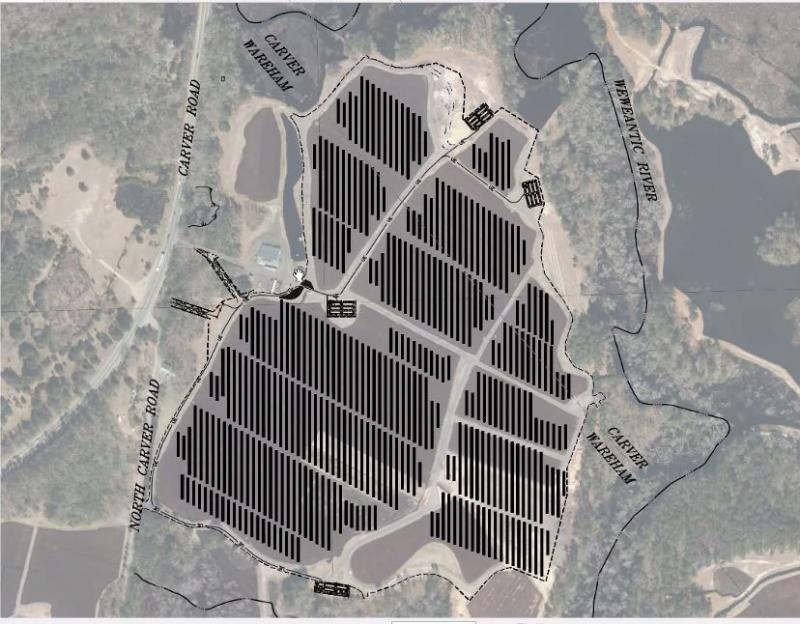Solar over cranberry bogs questioned by Conservation Commission
The solar farm proposed to operate over active cranberry bogs on North Carver Road was questioned by conservation commissioner Dave Pichette and members of the public at the July 7 Conservation Commission meeting.
BE RE LLC’s proposal has already been approved by Wareham’s Planning Board and Carver’s Planning Board and Conservation Commission — the farm straddles the two towns. The plan calls for solar panels over 28 acres of farmland in Wareham.
The plan is based on a state program that incentivizes farmers to harvest solar energy in addition to their crops and which requires the land to continue to be actively farmed.
Pichette said that the project borders wetlands, the Weweantic Riverfront and lands subject to flooding. It’s proposed within the town’s wetland 50-foot no activity zone.
Pichette had a number of concerns: The fields would require battery storage units near the bogs and underground wiring, which he was concerned would contaminate groundwater. The project would require security fencing, which would cut through the riverfront area — Pichette said he thought the riverfront should remain undisturbed.
Because the project is proposed for the riverfront, the applicant is required to submit an alternatives analysis which presents other alternatives that would not impact the riverfront. Pichette thought that report was not extensive enough, and should consider other sites.
Pichette said he thought the commission should not grant a waiver to the 50-foot no activity zone around wetlands.
“The wetland bylaw also has language relative to the aesthetic impacts of projects,” Pichette said. “So while many projects are somewhat limited in scale, the scope of this project and other solar projects on cranberry bogs that would likely follow if this one was entertained, would have a significant impact on the town’s wetlands landscape while further fragmenting wetland and wildlife habitat.”
Members of the public expressed concerns about the lithium-ion batteries that would be stored on the site. Several said the batteries posed a fire risk that firefighters may not be trained to fight.
Adam Schumaker, representing the project, said that the batteries will be stored in steel containers and that the project meets state and national fire codes.
Schumaker also defended the project from claims that it would be detrimental to the environment.
“The DEP’s position is that dual-use projects on wetland cranberry bogs do not adversely impact the ability of those resources to contribute to the Wetland Protection Act,” he said.
The hearing was continued.















